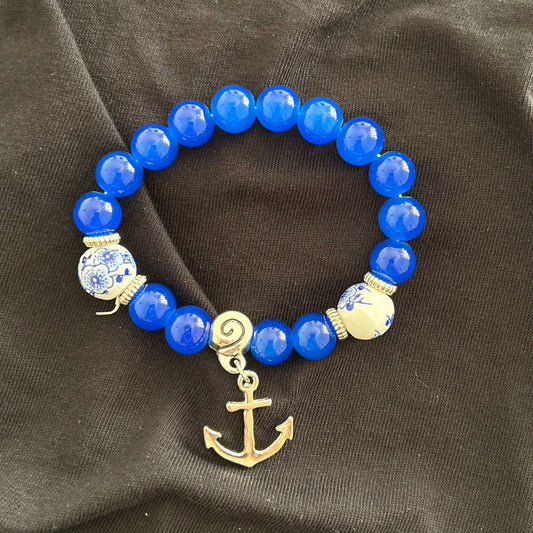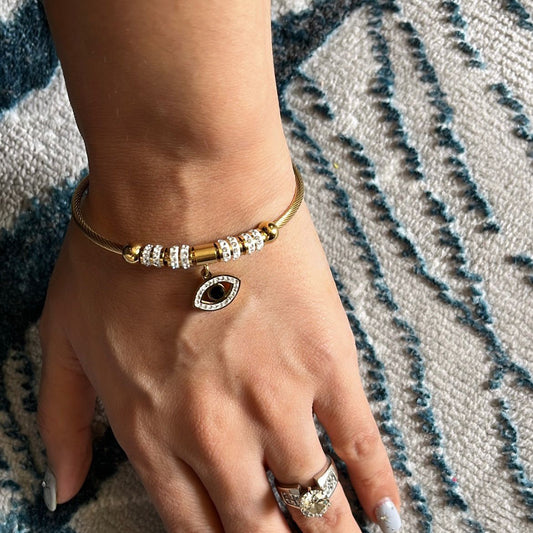Can earrings cause ear infection?
Share
Title: 🩺 Exploring the Link: Can Earrings Cause Ear Infections? 💎
Introduction:
In the realm of health and wellness, concerns often arise regarding the potential risks associated with common accessories. Among the inquiries that echo through the corridors of medical knowledge, one question frequently surfaces: Can earrings cause ear infections? Let's delve into this topic, unraveling the connections and dispelling any misconceptions surrounding earrings and ear health.
Understanding the Concern:
Earrings, as fashionable adornments worn on the ears, have adorned individuals for centuries, adding a touch of elegance and style to their appearance. However, amidst the allure of jewelry, questions emerge regarding whether earrings pose any risk of triggering ear infections, a common concern for many wearers.
Exploring the Relationship:
Ear infections can occur due to various factors, including bacterial or fungal growth, irritation, or allergic reactions. While earrings themselves may not directly cause infections, certain practices associated with wearing earrings can increase the risk of ear-related issues.
1. Piercing Procedures: Ear piercings, especially when performed under unhygienic conditions or by inexperienced individuals, can introduce bacteria or pathogens into the skin, leading to infections. Proper sterilization techniques and aftercare protocols are essential to minimize this risk.
2. Allergic Reactions: Some individuals may experience allergic reactions to certain earring materials, such as nickel or other metals. Allergic dermatitis can manifest as redness, itching, or inflammation around the pierced area, potentially increasing susceptibility to secondary infections if left untreated.
3. Prolonged Wear: Extended periods of wearing earrings, particularly if they are tight-fitting or exert pressure on the earlobes, can cause irritation and breakdown of the skin barrier, making it more susceptible to infection. Regular removal and cleaning of earrings can help prevent this issue.
4. Poor Hygiene: Inadequate hygiene practices, such as infrequent cleaning of earrings or failure to wash hands before handling earrings, can introduce bacteria or contaminants into the pierced area, increasing the risk of infections.
Clarifying Preventive Measures:
To minimize the risk of ear infections associated with earrings, individuals can adopt the following preventive measures:
1. Choose Hypoallergenic Materials: Opt for earrings made from hypoallergenic materials, such as surgical stainless steel, titanium, or gold, to reduce the risk of allergic reactions and skin irritation.
2. Practice Proper Aftercare: Follow recommended aftercare protocols provided by piercing professionals to promote healing and prevent infections. This may include cleaning the pierced area with saline solution or antiseptic solutions and avoiding excessive touching or manipulation of the earrings.
3. Maintain Good Hygiene: Clean earrings regularly with mild soap and water to remove dirt, debris, and bacteria. Ensure that hands are clean before handling earrings, and avoid sharing earrings with others to prevent the spread of infections.
4. Monitor for Signs of Infection: Be vigilant for symptoms of ear infections, such as pain, redness, swelling, discharge, or fever. If any signs of infection occur, promptly seek medical attention for proper evaluation and treatment.
Conclusion:
While earrings themselves may not directly cause ear infections, certain practices associated with wearing earrings can increase the risk of ear-related issues. By adopting proper hygiene practices, choosing hypoallergenic materials, and following recommended aftercare protocols, individuals can minimize the risk of ear infections and enjoy the beauty of earrings without compromising ear health. 💎🩺
Introduction:
In the realm of health and wellness, concerns often arise regarding the potential risks associated with common accessories. Among the inquiries that echo through the corridors of medical knowledge, one question frequently surfaces: Can earrings cause ear infections? Let's delve into this topic, unraveling the connections and dispelling any misconceptions surrounding earrings and ear health.
Understanding the Concern:
Earrings, as fashionable adornments worn on the ears, have adorned individuals for centuries, adding a touch of elegance and style to their appearance. However, amidst the allure of jewelry, questions emerge regarding whether earrings pose any risk of triggering ear infections, a common concern for many wearers.
Exploring the Relationship:
Ear infections can occur due to various factors, including bacterial or fungal growth, irritation, or allergic reactions. While earrings themselves may not directly cause infections, certain practices associated with wearing earrings can increase the risk of ear-related issues.
1. Piercing Procedures: Ear piercings, especially when performed under unhygienic conditions or by inexperienced individuals, can introduce bacteria or pathogens into the skin, leading to infections. Proper sterilization techniques and aftercare protocols are essential to minimize this risk.
2. Allergic Reactions: Some individuals may experience allergic reactions to certain earring materials, such as nickel or other metals. Allergic dermatitis can manifest as redness, itching, or inflammation around the pierced area, potentially increasing susceptibility to secondary infections if left untreated.
3. Prolonged Wear: Extended periods of wearing earrings, particularly if they are tight-fitting or exert pressure on the earlobes, can cause irritation and breakdown of the skin barrier, making it more susceptible to infection. Regular removal and cleaning of earrings can help prevent this issue.
4. Poor Hygiene: Inadequate hygiene practices, such as infrequent cleaning of earrings or failure to wash hands before handling earrings, can introduce bacteria or contaminants into the pierced area, increasing the risk of infections.
Clarifying Preventive Measures:
To minimize the risk of ear infections associated with earrings, individuals can adopt the following preventive measures:
1. Choose Hypoallergenic Materials: Opt for earrings made from hypoallergenic materials, such as surgical stainless steel, titanium, or gold, to reduce the risk of allergic reactions and skin irritation.
2. Practice Proper Aftercare: Follow recommended aftercare protocols provided by piercing professionals to promote healing and prevent infections. This may include cleaning the pierced area with saline solution or antiseptic solutions and avoiding excessive touching or manipulation of the earrings.
3. Maintain Good Hygiene: Clean earrings regularly with mild soap and water to remove dirt, debris, and bacteria. Ensure that hands are clean before handling earrings, and avoid sharing earrings with others to prevent the spread of infections.
4. Monitor for Signs of Infection: Be vigilant for symptoms of ear infections, such as pain, redness, swelling, discharge, or fever. If any signs of infection occur, promptly seek medical attention for proper evaluation and treatment.
Conclusion:
While earrings themselves may not directly cause ear infections, certain practices associated with wearing earrings can increase the risk of ear-related issues. By adopting proper hygiene practices, choosing hypoallergenic materials, and following recommended aftercare protocols, individuals can minimize the risk of ear infections and enjoy the beauty of earrings without compromising ear health. 💎🩺









